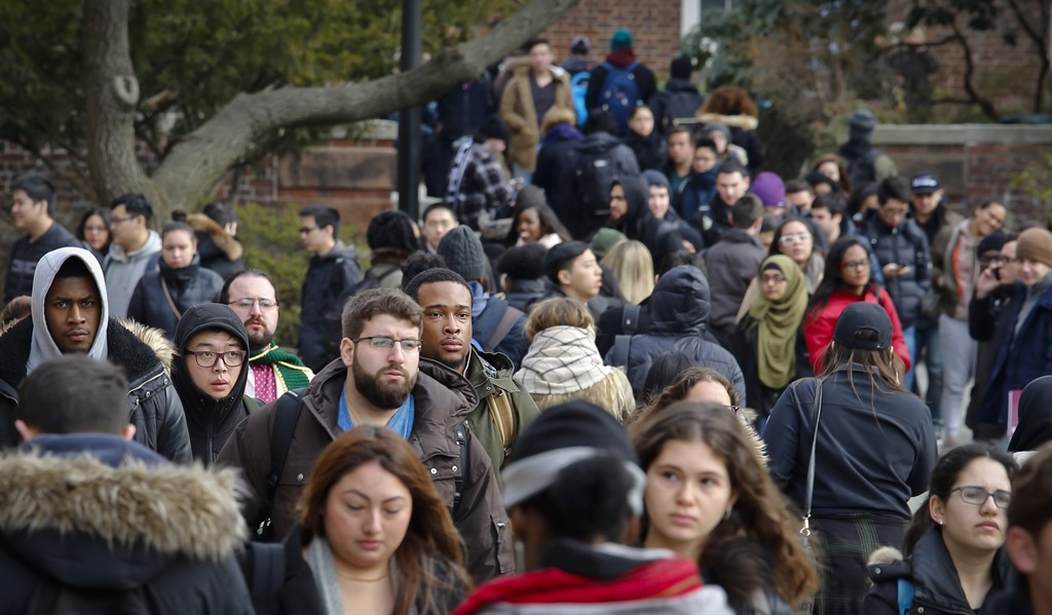Being president is pretty much the same as being a magician. You’ve seen magicians who wave a magic wand and can make an elephant disappear? Well, presidents can wave a magic pen and make tens of billions of dollars in cash disappear.
The only difference is presidents don’t usually wear a pointy hat.
In the last decade or so, presidents have become experts at the disappearing money trick. They’ve also gotten very good at making money magically appear. Maybe instead of an election, we should hold auditions for the best magician in the country.
As most of us were taught when we were young, to err is human, to forgive is divine. Millions of Americans erred in taking on hundreds of thousands of dollars in student loans. If they were planning to be tech entrepreneurs or Wall Street lawyers, it was reasonable to assume they could eventually pay those loans back.
But many ended up with jobs where it would take them decades to repay. Student loan debt has now reached $1.7 trillion, so Joe Biden wants to take the divine way out of this mess and forgive tens of billions of dollars in student loans.
Schumer, D-N.Y., said Biden should enact a plan that he laid out earlier this year alongside Sen. Elizabeth Warren, D-Mass., under which the president could use executive authority to immediately cancel up to $50,000 of student debt per borrower. Biden has called for forgiving $10,000 in student loan debt as part of a broader coronavirus relief package.
“Getting rid of student debt,” Schumer said during an interview with The Ink. “I have a proposal with Elizabeth Warren that the first $50,000 of debt be vanquished, and we believe that Joe Biden can do that with the pen as opposed to legislation.”
What you are not going to hear much about over the next few months that this proposal is examined is how we got into this mess. The image we have of the hard-working middle or lower-class kid, striving for a better life by taking out loans to go to college is not exactly true. In fact, many borrowers are upper-middle-class students and parents taking out loans for graduate school. Fully one-quarter of loans fall into this category, according to the CBO.
Student loan debt increased from $187 billion in 1995 to $1.4 trillion in 2017. It obviously got easier and easier to get money for college — not a bad thing — but harder and harder to pay it back — a very bad thing. All sorts of gimmicks have been tried to get young adults out from under their student debt load to no avail.
So is simply waving the magic pen the answer? Consider that the American taxpayer is going to be asked to pay back these loans. Just because they’re “forgiven” doesn’t mean the debt itself disappears. Someone, somewhere, somehow has to pay that money back. And taxpayers are going to be stuck with the bill.
Is that fair?
Student loan forgiveness is a quintessential example of regressive policy. As Cooper points out, “the top fifth of households holds $3 in student loans for every $1 held by the bottom fifth.” At the same time, those with the higher levels of debt (exceeding $50,000) “almost exclusively have bachelor’s degrees.”
Moreover, as Cooper explains, 210 million adult Americans do not have federal student loan debt, compared to the 45 million who do. Student loan forgiveness demands that those 210 million Americans take on the debt of those 45 million borrowers.
What makes it doubly unfair is that millions of American kids chose a different path — one without taking on unpayable debt.
For those individuals who avoided debt—either by working their way through college, going to community college for two years before attending a four-year college to reduce costs, living at home, serving in the armed forces to later benefit from the GI Bill, working hard in high school to receive merit-based aid, or by eschewing college altogether—blanket student loan forgiveness is simply unfair.
It’s particularly unfair to demand of the nearly three-quarters of Americans who do not hold bachelor’s degrees to pay off someone else’s debt. Such proposals mean those Americans without bachelor’s degrees are being forced to foot the bill for individuals who, statistically, are likely to out-earn them in the future.
Student loan forgiveness is all about rewarding important political constituencies — and not about “fairness.”
BLM/Antifa Split Over Biden Win, Racial Justice










Join the conversation as a VIP Member